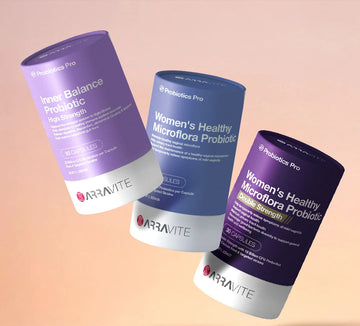You might not know that your gut microbiome is essential in maintaining your health daily. The gut microbiome, a rich world of bacteria living in our digestive tracts that we may not even be aware of, is a fully functioning organ that plays a critical role in our body. Looking after it is not a nice-to-have if you want to stay healthy; rather, it is essential to be invigorated and resilient in the face of illness.
So, let’s discover your gut microbiome, why you should care, and what you can do to care for your gut.
What is the Gut Microbiome?
The gut microbiome refers to the microscopic world within your larger body. The trillions of microorganisms that live in your gut affect your digestive and immune environments in several ways. They also influence many other aspects of your overall health, including digestion, skin, and heart health.
Why is the gut microbiome important?
Most of the microbiome in our stomach is beneficial to us. We give them food and shelter, and they do good work for our bodies. The helpful microbes control the growth of potentially harmful ones.
You can imagine your gut microbiome as an ecosystem, a rich native rainforest that depends on it for food and medicine. If your garden is healthy and productive, you’re healthy and productive. But if your soil is deficient or contaminated, or pests or weeds are taking over the useful plants, it can destroy your entire ecosystem.
Notably, the food you eat impacts the diversity of gut bacteria. As your microbiome develops, it influences your body in a myriad of ways, such as:
- Digesting breast milk: Some of the bugs that come to live in a baby’s gut are Bifidobacteria, which are among the first bacteria to move in. They metabolise the wholesome sugars in breast milk that are crucial for growth.
- Digesting fibre: Some gut bacteria consume fibre and produce short-chain fatty acids, which benefit the gut. Fibre may protect against weight gain and help prevent diabetes, heart disease, and cancer risk.
- Power your immune system: The gut microbiome influences your immune system. The gut microbiome can dictate how your body responds to an infection through crosstalk with immune cells.
- Helping control brain health: Some new research on the gut microbiome also suggests it may influence the central nervous system, which controls the brain.
As such, there are a variety of pathways through which the gut microbiome could influence key bodily functions and impact your health.
What are Gut Microbiome Probiotics?
Gut microbiome probiotics are living, friendly bacteria that can help keep your gut flora healthy. When consumed regularly, they promote the growth of beneficial microbes, which crowd out and challenge harmful bacteria, and bolster the lining of your gut.
Probiotics occur naturally in foods such as yoghurt, kefir, sauerkraut, and kimchi. But when it comes to getting adequate support, relying on ARRAVITE’s gut microbiome probiotics can be helpful. They’re meticulously formulated, so you receive the exact strains known to support the benefits of taking probiotics, including digestion and more.
How Can You Take Better Care of Your Microbiome?
Looking after your microbiome is one of the best investments you can make for your health. Here are five powerful, research-backed ways to do it:
1. Prioritise a Fibre-Rich Diet
A diet of vegetables, fruits, legumes, and whole grains feeds good gut bacteria. Fibres are the only way they get food, and when they digest them, they generate anti-inflammatory compounds that coat your gut. Research indicates high-fibre diets increase microbiome diversity and lower disease risk. (Source: PubMed Central)
2. Incorporate Probiotic Foods and Supplements
Natural additions to your gut flora include probiotic-rich foods (such as kefir and sauerkraut) that you must add into your diet. For more focused support, try gut probiotic supplements. The supplements will ensure you get the right strains in adequate doses. Probiotics therapy has been demonstrated to assist in restoring the balance of gut flora, modulating immune response, and improving digestion. (Source: PubMed Central)
ARRAVITE’s Inner Balance is an oral gut microbiome probiotic supplement offering eight targeted strains of good bacteria. It contains 20 billion CFU probiotics and replenishes the good bacteria population faster.
3. Minimise Unnecessary Antibiotic Use
Antibiotics save lives, but they can also destroy good bacteria along with the bad. Only consume them when needed and use probiotics to replenish your gut microbiome. Antibiotics can also have long-lasting effects on the gut microbiota; sometimes, your body takes months to return to normal.
4. Reduce Sugar and Artificial Sweeteners
Too much sugar and artificial sweeteners feed the harmful bacteria rather than the good, and can lead to a sick gut. Artificial sweeteners change the gut microbiota and may elicit glucose intolerance.
5. Manage Stress and Sleep Well
Long-term stress and poor sleep degrade your health by damaging the gut-brain axis, so your gut microbiome weakens. Stress changes the diversity and function of the gut microbiota with detrimental effects on immune and metabolic health (Bailey et al., 2011).
Keep Your Gut Healthy with ARRAVITE’s Gut Microbiome Probiotics
Your microbiome isn’t simply found inside you, and it is you. It’s health, and thus your own, equates to your daily decisions. Every food and stress management choice you make shapes the health of this robust yet fragile ecosystem. Adding a high-quality probiotic, like ARRAVITE’s gut microbiome probiotics, can give your microbiome the targeted support it needs to flourish.
Take two capsules daily to boost your immune system to fight illness and relieve digestive discomfort, abdominal bloating & flatulence. It’s Vegan, non-GMO, dairy-free and gluten-free.
Start your journey to a better microbiome for gut health today, because when your gut thrives, you thrive!
References:
Gazerani S, Zaringhalam J, Manaheji H, Golabi S. The Role of C Fibers in Spinal Microglia Induction and Possible Relation with TRPV3 Expression During Chronic Inflammatory Arthritis in Rats. Basic Clin Neurosci. 2016 Jul;7(3):231-40. doi: 10.15412/J.BCN.03070308. PMID: 27563416; PMCID: PMC4981835.
Kumari R, Subudhi S, Suar M, Dhingra G, Raina V, Dogra C, Lal S, van der Meer JR, Holliger C, Lal R. Cloning and characterization of lin genes responsible for the degradation of Hexachlorocyclohexane isomers by Sphingomonas paucimobilis strain B90. Appl Environ Microbiol. 2002 Dec;68(12):6021-8. doi: 10.1128/AEM.68.12.6021-6028.2002. PMID: 12450824; PMCID: PMC134425





